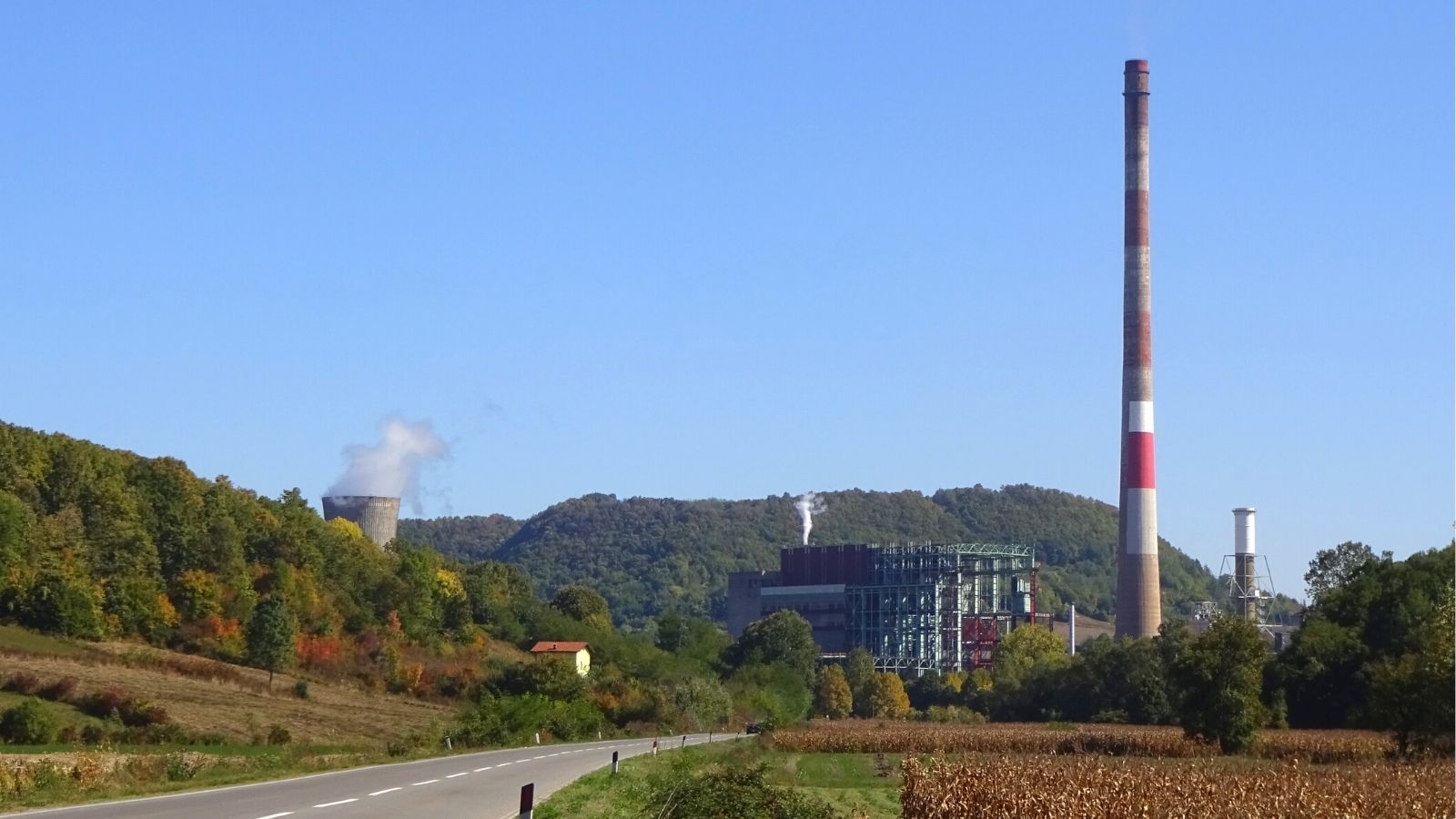Ugljevik power plant, Bosnia and Herzegovina
Commissioned in 1985, the 300 MW coal power plant in Ugljevik, Bosnia and Herzegovina, has become famous for emitting more sulphur dioxide than all of Germany’s coal power plants in 2019.

Stay informed
We closely follow international public finance and bring critical updates from the ground.
Background
To put things in perspective, for every GWh of electricity generated in 2019, Ugljevik emitted 50 tonnes of sulphur dioxide, that is 50 times more than EU’s worst polluter, Bełchatów in Poland, which emitted 1.1 tonnes of SO2/GWh.
The problem is not new, but the paradox is that a financing contract for installing desulphurisation (de-SOx) equipment at Ugljevik was signed more than 14 years ago, and the installation is still not functioning.
Financed by a loan from the Japan International Cooperation Agency (JICA) signed back in 2009, works on the de-SOx equipment started only in 2017 and test operations began in December 2019. It seemed likely that in 2020, SO2 emissions would be significantly lower, finally justifying the EUR 85 million investment.
However, in February 2020 technical problems were reported. The plant’s dust filters, overhauled more than three years ago by the Czech company Termochem at a cost of around EUR 10 million, were faulty, and their proper functioning is reported to be a precondition for desulphurisation. The plant operator spent an additional EUR 100,000 on a study that would show how to address the problem.
In 2021, RiTE Ugljevik, the power plant operator, sought ‘technical assistance’ to obtain the operating permit, adding an extra EUR 100,000 to the costs of this project. The contract was awarded to a company owned by the mayor of Zvornik, raising a host of questions on why the publicly-owned utility RiTE Ugljevik is not capable of obtaining an operating permit itself.
The plant finally obtained an operating permit for the desulphurisation equipment in November 2021. However, its 2022 sulphur dioxide emissions of 85,526 tonnes were barely any lower than those in 2021 (86,774 tonnes). Since 2018, when the Large Combustion Plants Directive entered force under the Energy Community Treaty, there has been no significant decrease in the plant’s emissions.
Out of all Bosnia and Herzegovina’s coal power plants, Ugljevik’s emissions caused the most days of asthmatic symptoms in children, with over 12,000 days in 2020. This is equal to 48 per cent of all such impacts from the country’s coal power plants which are included in the National Emissions Reduction Plan. Ugljevik is also responsible for the highest number of cases of bronchitis in children due to dust emissions, and of hospital admissions because of cardiovascular and respiratory symptoms, with 1,142 cases of the former and 469 of the latter in 2020.
Latest news
EBRD Board of Directors must face responsibility for long-term partner EPS’ wrongdoings
Press release | 25 July, 2011Belgrade – Today, over 70 protesters from the Vreoci community is gathering in front of the Belgrade EBRD offices to protest abusive practices by state-owned Elektroprivreda Srbija (EPS), in London, the bank’s Board of Directors is congratulating itself for another profitable deal with the energy company. The EBRD cannot continue to brush off responsibility for corruption acts and human rights abuses committed by their long-term business partner.
Read more18 000 ask Slovenia to adopt clean energy. EBRD and EIB, take a hint.
Blog entry | 5 July, 201118 000 people from around the world have asked the Slovene government to adopt a future proof National Energy Plan that doesn’t rely on fossil fuels or nuclear energy. Bankwatch research coordinator Pippa Gallop took part in handing over the list of signatories yesterday and points out that European public banks also need to take the message seriously.
Read moreEBRD: Don’t open pandora’s box with lignite open cast mine in Serbia
Blog entry | 4 July, 2011Before making any decisions on the planned EUR 80 million loan for the Kolubara lignite mine project in Serbia, the European Bank for Reconstruction and Development’s Board of Directors should take note of the controversy the bank will get involved in. Not only are the climate impacts of lignite well known, but the project is also indirectly connected to the resettlement of nearby residents.
Read moreRelated publications
The EU’s proposed Reform and Growth Facility for the Western Balkans
Briefing | 7 March, 2024 | Download PDFThis briefing provides key recommendations to define clearer and narrower goals for the Reform and Growth Facility for the Western Balkans, focusing on social and/or environmental goals.
The Western Balkans residential Green Economy Financing Facility: Results so far and recommendations for further action
Briefing | 31 January, 2024 | Download PDFThis briefing assesses the effectiveness of the energy efficiency credit lines for households financed through the Green Economy Financing Facility, in terms of environmental sustainability and attractiveness for users in all six Western Balkan countries.
Comply or Close 2023: five years of deadly legal breaches by Western Balkan coal plants
Report | 28 June, 2023 | Download PDFThe end of 2022 marked five years since new air pollution standards entered into force in the Western Balkans on 1 January 2018. Yet the deadly air pollution from the region’s mostly antiquated coal power plants has hardly decreased at all. In fact, in 2022 it increased compared to 2021 for all three regulated pollutants
